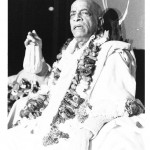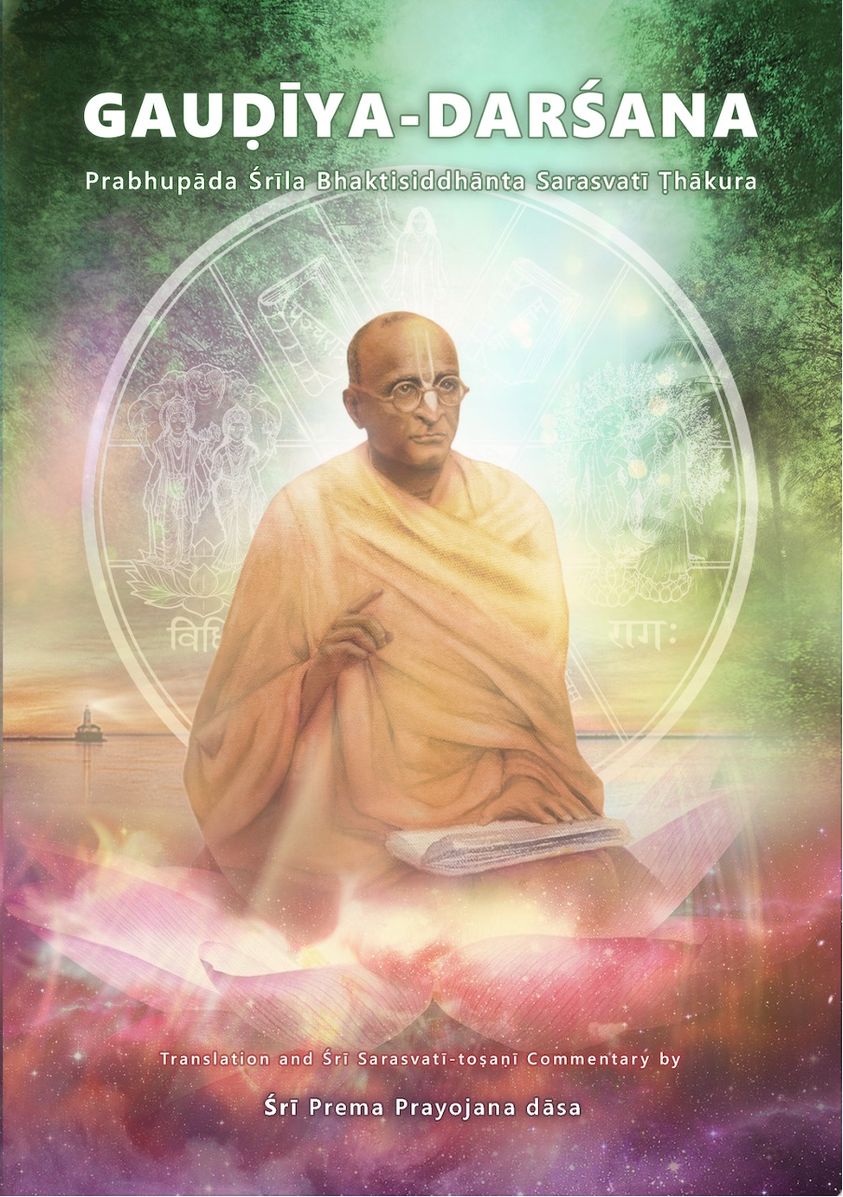Freedom

Srila Prabhupada

Srila Prabhupada
From Srila Bhaktivedanta Swami Prabhupadas Bhagavad Gita Chapter 4 Texts 22, 23 and 24
Chapter 4 Text 22
He who is satisfied with gain which comes of its own accord, who is free from duality and does not envy, who is steady both in success and failure, is never entangled, although performing actions.
PURPORT
A Kṛṣṇa conscious person does not make much endeavor even to maintain his body. He is satisfied with gains which are obtained of their own accord. He neither begs nor borrows, but he labors honestly as far as is in his power, and is satisfied with whatever is obtained by his own honest labor. He is therefore independant in his livelihood. He does not allow anyone's service to hamper his own service in Kṛṣṇa consciousness.
However, for the service of the Lord he can participate in any kind of action without being disturbed by the duality of the material world. The duality of the material world is felt in terms of heat and cold, or misery and happiness. A Kṛṣṇa conscious person is above duality because he does not hesitate to act in any way for the satisfaction of Kṛṣṇa. Therefore he is steady both in success and in failure. These signs are visible when one is fully in transcendental knowledge.
Chapter 4 Text 23
The work of a man who is unattached to the modes of material nature and who is fully situated in transcendental knowledge merges entirely into transcendence.
PURPORT
Becoming fully Kṛṣṇa conscious, one is freed from all dualities and thus is free from the contaminations of the material modes. He can become liberated because he knows his constitutional position in relationship with Kṛṣṇa; and thus his mind cannot be drawn from Kṛṣṇa consciousness. Consequently, whatever he does, he does for Kṛṣṇa, who is the primeval Viṣṇu. Therefore, all his works are technically sacrifices because sacrifice involves satisfying the Supreme Person, Kṛṣṇa. The resultant reactions to all such work certainly merge into transcendence, and one does not suffer material effects
Chapter 4 Text 24
A person who is fully absorbed in Kṛṣṇa consciousness is sure to attain the spiritual kingdom because of his full contribution to spiritual activities, in which the consummation is absolute and that which is offered is of the same spiritual nature.
PURPORT
How activities in Kṛṣṇa consciousness can lead one ultimately to the spiritual goal is described here. There are various activities in Kṛṣṇa consciousness, and all of them will be described in the following verses. But, for the present, just the principle of Kṛṣṇa consciousness is described. A conditioned soul, entangled in material contamination, is sure to act in the material atmosphere, and yet he has to get out of such an environment. The process by which the conditioned soul can get out of the material atmosphere is Kṛṣṇa consciousness. For example, a patient who is suffering from a disorder of the bowels due to overindulgence in milk products is cured by another milk product, namely curds. The materially absorbed conditioned soul can be cured by Kṛṣṇa consciousness as set forth here in the Gītā. This process is generally known as yajsha, or activities (sacrifices) simply meant for the satisfaction of Viṣṇu or Kṛṣṇa. The more the activities of the material world are performed in Kṛṣṇa consciousness, or for Viṣṇu only, the more the atmosphere becomes spiritualized by complete absorption. Brahman means spiritual. The Lord is spiritual, and the rays of His transcendental body are called brahmajyoti, His spiritual effulgence. Everything that exists is situated in that brahmajyoti, but when the jyoti is covered by illusion (māyā) or sense gratification, it is called material. This material veil can be removed at once by Kṛṣṇa consciousness; thus the offering for the sake of Kṛṣṇa consciousness, the consuming agent of such an offering or contribution; the process of consumption, the contributor, and the result are-all combined together-Brahman, or the Absolute Truth. The Absolute Truth covered by māyā is called matter. Matter dovetailed for the cause of the Absolute Truth regains its spiritual quality. Kṛṣṇa consciousness is the process of converting the illusory consciousness into Brahman, or the Supreme. When the mind is fully absorbed in Kṛṣṇa consciousness, it is said to be in samādhi, or trance. Anything done in such transcendental consciousness is called yajsha, or sacrifice for the Absolute. In that condition of spiritual consciousness, the contributor, the contribution, the consumption, the performer or leader of the performance, and the result or ultimate gain-everything-becomes one in the Absolute, the Supreme Brahman. That is the method of Kṛṣṇa consciousness












